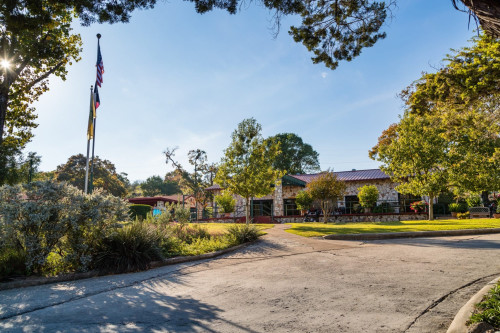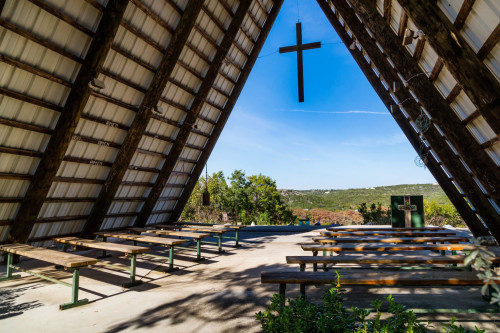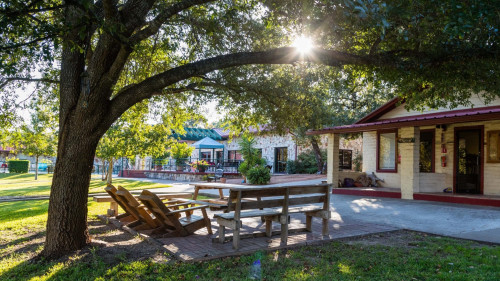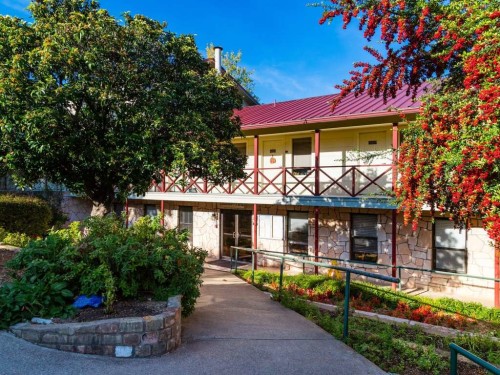






La Hacienda
Treatment Focus
This center treats substance use disorders and co-occurring mental health conditions. Your treatment plan addresses each condition at once with personalized, compassionate care for comprehensive healing.
Primary Level of Care
Offering intensive care with 24/7 monitoring, residential treatment is typically 30 days and can cover multiple levels of care. Length can range from 14 to 90 days typically.
Claimed
Recovery.com has connected directly with this treatment provider to validate the information in their profile.
Treatment Focus
This center treats substance use disorders and co-occurring mental health conditions. Your treatment plan addresses each condition at once with personalized, compassionate care for comprehensive healing.
Primary Level of Care
Offering intensive care with 24/7 monitoring, residential treatment is typically 30 days and can cover multiple levels of care. Length can range from 14 to 90 days typically.
Provider's Policy
We accept most major insurance policies.
La Hacienda
La Hacienda
About La Hacienda
La Hacienda is a residential rehabilitation facility located in Hunt Texas, that treats men and women who are struggling with alcohol and drug addictions and co-occurring mental health issues. Founded in 1972, La Hacienda blends clinical, spiritual, medical, and 12-Step facilitation. Their staff to client ratio is 2:1. Their medical team consists of 5 full time physicians, 4 internists, and 1 psychiatrist. The nursing staff provides 24 hour care 7 days a week. La Hacienda has medically assisted detoxification, a partial hospitalizations program (PHP), an intensive outpatient program (IOP), an inpatient program, and aftercare support. They use evidence-based therapies mixed with holistic ones. Some therapies include cognitive behavioral therapy (CBT), dialectical behavioral therapy (DBT), art therapy, experiential therapies, family therapy, group and individual therapy, life skills, motivational interviewing, nutrition therapy, rational behavior therapy (RBT), and recreational therapy. La Hacienda offers a 24/7 doctor-and nurse-supervised detox program in a separate building called the Special Care Unit. The length of detox varies on a case-by-case basis. A typical stay is between 28-60 days. Cell phones and computers are not allowed during treatment. Family programming includes a family week, a family recovery plan, education about addiction, boundaries and codependency, and discussions of client and family needs and information about the 12 steps. La Hacienda is accredited by the Joint Commission and accepts most major insurances.
La Hacienda used to be a resort, so the layout of the bedrooms is hotel style and are shared accommodations. They encourage clients to explore the outdoors for reading, meditation, and outdoor meetings with therapies. The grounds are expertly designed to promote tranquility with beautiful gardens and lush flower beds. The campus has a pool table, ping pong table, board games, books, and movies for down time. There is an on-site, fully equipped gym, climbing wall, and outdoor pool. The dining room is large and resembles a restaurant, and meals are prepared by a culinary team that works closely with a nutritionist for balanced meals. Special diets are accommodated, and clients with eating disorders get additional supervision and aid. Vending machines with soda are available, too.

Center Overview
Treatment Focus
This center treats substance use disorders and co-occurring mental health conditions. Your treatment plan addresses each condition at once with personalized, compassionate care for comprehensive healing.
Joint Commission Accredited
The Joint Commission accreditation is a voluntary, objective process that evaluates and accredits healthcare organizations (like treatment centers) based on performance standards designed to improve quality and safety for patients. To be accredited means the treatment center has been found to meet the Commission's standards for quality and safety in patient care.
Insurance Accepted
Cash Pay Rates
Estimated Cash Pay Rate
Center pricing can vary based on program and length of stay. Contact the center for more information. Recovery.com strives for price transparency so you can make an informed decision.
Levels of Care






Your Care Options
Who We Treat
Approaches
Evidence-Based
A combination of scientifically rooted therapies and treatments make up evidence-based care, defined by their measured and proven results.
Experiential
Expressive tools and therapies help patients process past situations, learn more about themselves, and find healing through action.
Holistic
A non-medicinal, wellness-focused approach that aims to align the mind, body, and spirit for deep and lasting healing.
Medical
Medical addiction treatment uses approved medications to manage withdrawals and cravings, and to treat contributing mental health conditions.
Twelve Step
Incorporating spirituality, community, and responsibility, 12-Step philosophies prioritize the guidance of a Higher Power and a continuation of 12-Step practices.
Therapies
1-on-1 Counseling
Patient and therapist meet 1-on-1 to work through difficult emotions and behavioral challenges in a personal, private setting.
Rational Emotive Behavior Therapy
A type of cognitive therapy that identifies negative self-defeating thoughts and behaviors, rewriting beliefs to be positive, empowering, and present.
Art Therapy
Visual art invites patients to examine the emotions within their work, focusing on the process of creativity and its gentle therapeutic power.
Experiential Therapy
With this approach, patients heal by doing. Therapists help patients process difficult emotions to speak, using guided activities like art or dance.
Life Skills
Teaching life skills like cooking, cleaning, clear communication, and even basic math provides a strong foundation for continued recovery.
Motivational Interviewing and Enhancement Therapy (MET)
This approach is based on idea that motivation to change comes from within. Providers use a conversational framework that may help you commit to recovery.
Recreation Therapy
In recreation therapy, recovery can be joyful. Patients practice social skills and work through emotional triggers by engaging in fun activities.
Conditions We Treat
Anxiety
Anxiety is a common mental health condition that can include excessive worry, panic attacks, physical tension, and increased blood pressure.
Depression
Symptoms of depression may include fatigue, a sense of numbness, and loss of interest in activities. This condition can range from mild to severe.
Post Traumatic Stress Disorder
PTSD is a long-term mental health issue caused by a disturbing event or events. Symptoms include anxiety, dissociation, flashbacks, and intrusive thoughts.
Trauma
Some traumatic events are so disturbing that they cause long-term mental health problems. Those ongoing issues can also be referred to as "trauma."
Substances We Treat
Alcohol
Using alcohol as a coping mechanism, or drinking excessively throughout the week, signals an alcohol use disorder.
Benzodiazepines
Benzodiazepines are prescribed to treat anxiety and sleep issues. They are highly habit forming, and their abuse can cause mood changes and poor judgement.
Co-Occurring Disorders
A person with multiple mental health diagnoses, such as addiction and depression, has co-occurring disorders also called dual diagnosis.
Cocaine
Cocaine is a stimulant with euphoric effects. Agitation, muscle ticks, psychosis, and heart issues are common symptoms of cocaine abuse.
Drug Addiction
Drug addiction is the excessive and repetitive use of substances, despite harmful consequences to a person's life, health, and relationships.
Ecstasy
Ecstasy is a stimulant that causes intense euphoria and heightened awareness. Abuse of this drug can trigger depression, insomnia, and memory problems.
Heroin
Heroin is a highly addictive and illegal opioid. It can cause insomnia, collapsed veins, heart issues, and additional mental health issues.
Methamphetamine
Methamphetamine, or meth, increases energy, agitation, and paranoia. Long-term use can result in severe physical and mental health issues.
Languages
Care Designed for Your Needs
Personal Amenities
Amenities
Activities
What people are saying
Treatment
3.9
Accommodations
4.4
Food & Nutrition
4.2
Value
4.2
Pros
- Beautiful Location (2)
- Excellent & Effective Treatment Programming (2)
- Friendly & Competent Staff (2)
- Addressed Trauma (2)
KC
Treatment in 2013 • (30 days) • Reviewed 07/05/25
Former Client
•Entrepreneur
•Oklahoma
Kip M
Treatment in 2023 • (90 days) • Reviewed 11/04/23
Former Client
•Restauranteur
Parker
Reviewed 11/30/24
Review from Rehabs.com
Kim
Reviewed 11/06/23
Review from Rehabs.com
David Daughtrey
Reviewed 07/25/23
Review from Rehabs.com





